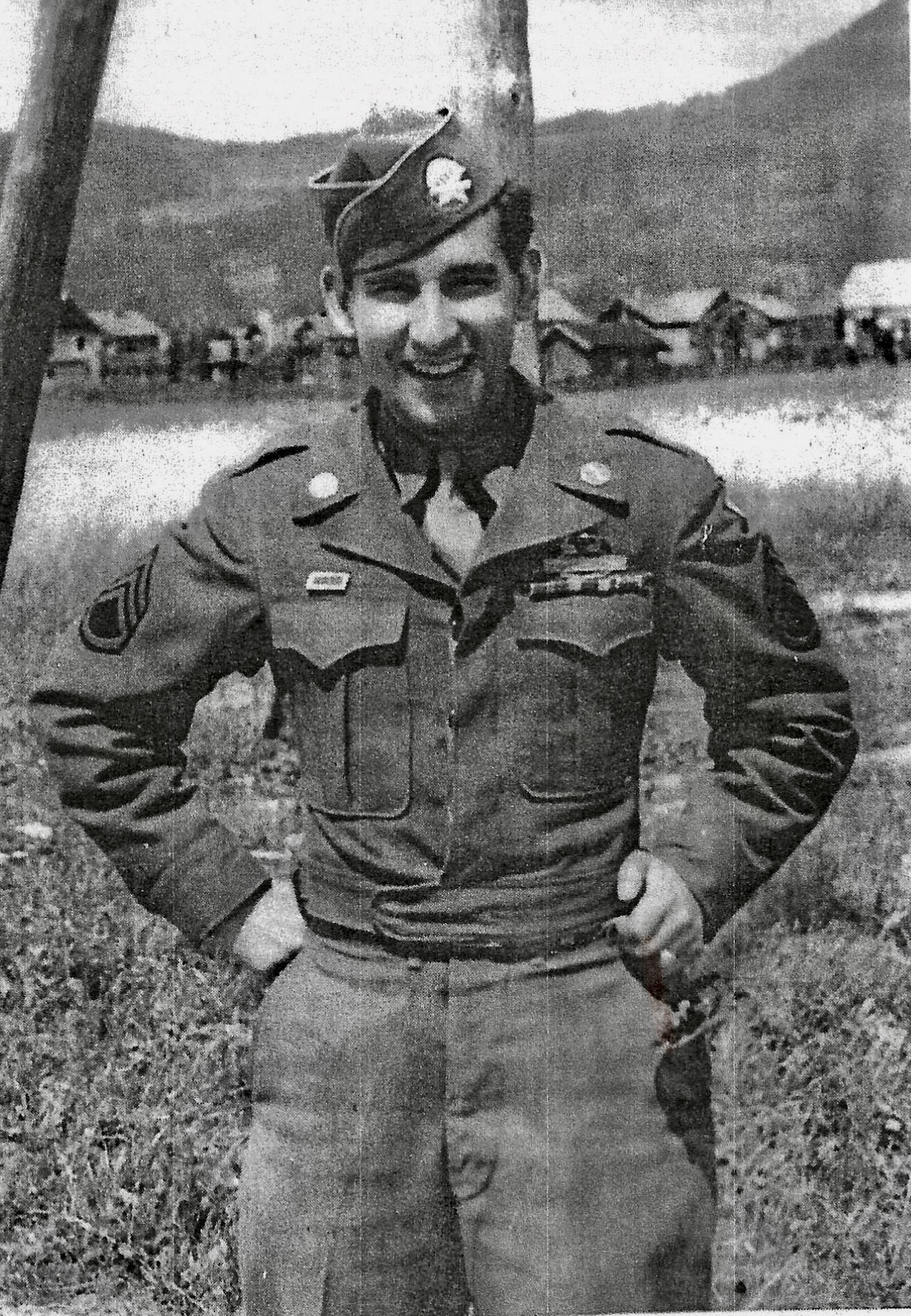Bastogne Remembered, by Leonard Baldyga and Tom Tuch
Leonard Baldyga retells this story by Hans "Tom" Tuch, one of the founders of U.S. public diplomacy. Tuch served in the U.S. Army before entering the world of diplomacy in the war's aftermath.
 Shortly after Thanksgiving 1944, the 101st Airborne Division was finally relieved after seventy days in Holland. The division had jumped into Holland on September 17 of that year, along with its sister 82nd Airborne Division and the ill-fated British 6th Airborne Division (made famous in the film, "A Bridge Too Far").
Shortly after Thanksgiving 1944, the 101st Airborne Division was finally relieved after seventy days in Holland. The division had jumped into Holland on September 17 of that year, along with its sister 82nd Airborne Division and the ill-fated British 6th Airborne Division (made famous in the film, "A Bridge Too Far").Normally, airborne troops are deployed for a brief period in assault operation--as had been the case in Normandy--and are then pulled out. We were therefore ill-equipped to stay in position for as long a period as we were in Holland, lacking all kinds of supplies, including food. We lived off the land, and the land--southern Holland--offered only apple orchards. We lived, literally, on apples. Thus, dirty, hungry and disgruntled, the "elite" paratroopers were "treated" to a so-called rest camp, an old French army caserne in Mourmelon-le-Grand, a small town near Rheims, where the only "luxury" accommodations were ratty straw mattresses that indeed constituted an improvement over the foxholes that had been our homes in Holland.
It was from there that the "Screaming Eagles" Division was ordered on December 17 to move out and head for Bastogne, a major highway center. While U.S. and other allied military units and large columns of civilians were retreating in the opposite direction, we moved into Bastogne which was quickly being deserted of its population. And that is where our ordeal started: Our mission was to hold the city. Surrounded by several German army divisions, our troops, together with some remnant of other U.S. army units, fought off German attempts to come at us from various directions in order to capture the city.
It was cold, the weather was bad. We had practically no food and found little in forays throughout the nearly empty city. It turned out that Bastogne had a substantial liquor distilling industry, and all we did find were supplies of cognac which sustained us as well as the many wounded soldiers who were lying on the floor of a large gymnasium, treated by our tiny medical unit.
Our small POW interrogation team--consisting of our team leader, Lt. Irwin Schwisow, my close friend Howard Sherman, and a corporal clerk/driver, was ensconced in a coal-handler's house near division headquarters. On our first night there, the house was bombed, but we were safe in the basement, and we remained there relatively safe and warm throughout the week, whereas most of our troops were out in the cold snow/rain, improperly prepared for the inclement weather. Trench foot was the common disability condition of many of our soldiers.
Bad weather conditions prevented airborne supplies--food, medical supplies, ammunition, gasoline--from reaching us. We were not taking many prisoners for us to interrogate. We were in fairly desperate circumstances. But morale seemed high, even as we learned that General Eisenhower had declared the 101st expendable--the hole in the donut, as we were described in the press.
On December 22, four Germans--a major, a captain and two enlisted men--bearing a white flag came over with a surrender demand. They were held at an outpost while the written surrender document was carried to General Anthony McAuliffe at division headquarters. When told what the document demanded, he laughed and said, "Oh, nuts; what am I going to tell them?" Col. Kinnard, the G-3, said, "Tell them what you just said." McAuliffe then said, "Nuts!" and that word was written as the reply. He then told Col. Harper to take that response back to the Germans. I accompanied Col. Harper (he was my regimental commander) as he went to the command post where the two blind-folded German officers were held.
They were incredulous when they were told what the paper said. I then volunteered that it meant "Go to hell!" and they seemed to understand.
On Christmas morning the weather had cleared--it was a bright sunny day--and suddenly the sky was full of C-47s, dropping hundreds of parachutes with cases of medical supplies, K-rations, bottles of drinking water, ammunition and canisters of gasoline. It was the most glorious Christmas any of us had ever experienced--a gift from heaven. K-rations had never tasted as good.
In the photo, Hans "Tom" Tuch, as a paratrooper during World War II. Taken at Berchtesgaden, May 1945, just after V-E Day.